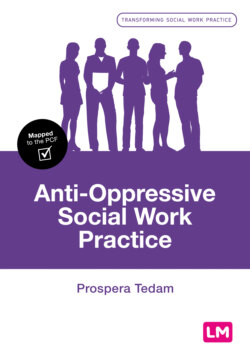Читать книгу Anti-Oppressive Social Work Practice - Prospera Tedam - Страница 42
На сайте Литреса книга снята с продажи.
Othering
Оглавление‘Othering’ is a broadly inclusive conceptual framework that captures expressions of prejudice. According to Nilsen et al. (2017, p40), ‘othering’ can be conceptually defined as the manner in which social group dichotomies are represented in language via binary oppositions of ‘us’ and ‘them’. Put simply, othering is to view and/or treat someone or a group of people with prejudice based on how different they are from ourselves. As a concept, othering reinforces positions of subordination and domination between and among people. Power relations are central to this concept because being defined as ‘other’ means not being viewed as ‘us/we’, nor indeed as ordinary members of society, but rather as outsiders.
Significant damage has been done over the years to unity and cohesion brought about largely by divisionist politics which has exacerbated feelings of ‘otherness’ in the UK and elsewhere (Meekosha, 2006). Lister (2008) confirms that othering produces and sustains an unhealthy ‘them and us’ situation. A few groups experiencing othering will be discussed in Chapter 12.
In order to work effectively with difference in social work, the idea of cultural competence has been promoted as a useful and effective skill to enhance outcomes for service users of diverse backgrounds and experiences.
